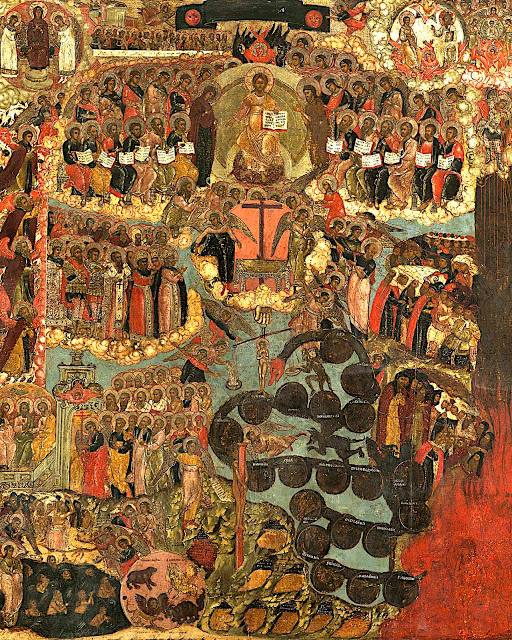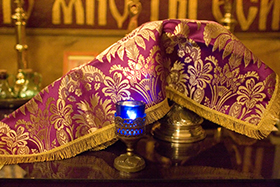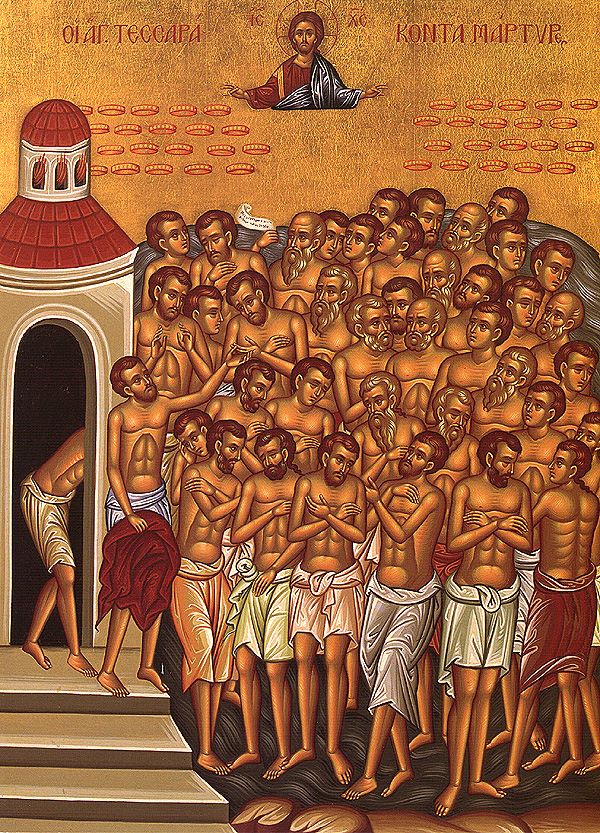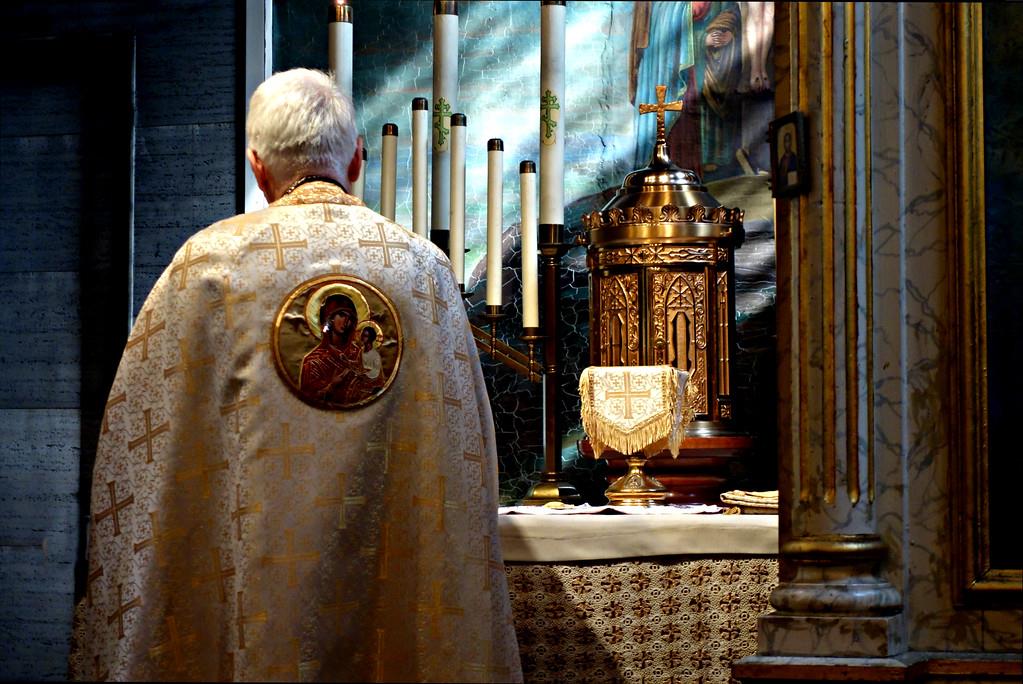 Everlasting life, promised in Holy Communion, is a central teaching of our faith. In the Nicene-Constantinopolitan Creed, which we recite in every Divine Liturgy and also frequently in the Divine Praises, says, “I expect the resurrection of the dead and the life of the world to come.” It is interesting that here we say, “I expect” rather than “I believe.” This is because this life beyond death is not only a matter of faith but also a matter of hope. And both faith and hope are virtues beyond human power alone, but need also the grace of God. In a way, we do not understand this life beyond death, probably we can that just as a child in the womb does not understand what it is to live in the world.
Everlasting life, promised in Holy Communion, is a central teaching of our faith. In the Nicene-Constantinopolitan Creed, which we recite in every Divine Liturgy and also frequently in the Divine Praises, says, “I expect the resurrection of the dead and the life of the world to come.” It is interesting that here we say, “I expect” rather than “I believe.” This is because this life beyond death is not only a matter of faith but also a matter of hope. And both faith and hope are virtues beyond human power alone, but need also the grace of God. In a way, we do not understand this life beyond death, probably we can that just as a child in the womb does not understand what it is to live in the world.
Death is the breakdown of our secular time and space to eternity and boundlessness. We are as yet unable to comprehend or understand this. Jesus taught it would be different, “At the resurrection they neither marry nor are given in marriage but are like the angels in heaven. (Matthew 22:30), and St. Paul cautions us, “So also is the resurrection of the dead …. It is sown a natural body; it is raised a spiritual body” (1 Corinthians 15:42.44). We do have analogous ways of thinking about death, when we pray in the Liturgy, “Grant rest, O Lord, to the souls of your departed servants in a place of light, joy and peace where there is no pain, sorrow, nor mourning.” We must be humble in our concepts of death, but still live in hope, for Jesus also said, “‘I am the God of Abraham, the God of Isaac, and the God of Jacob’? He is not the God of the dead but of the living” (Matthew 22:32). We also know that we will continue to be human, that is, have a body, as St. Paul says, a “spiritual body,” which we foresee already in our Lord’s resurrection. What is also undeniable is that we can pray for the dead, for no one of us dies already perfect, but we need to be purified of sin to be in the presence of the thrice-holy God.
The communion of saints tells us that we are one in Christ, and that we can pray for one another, and in this way not only help release our brothers and sisters in Christ but also ourselves from the bonds of sin. The souls of the faithful departed were always remembered on Saturday in our liturgical worship, because Saturday was the day that our Lord rested from all his works, after his death on the cross and before his glorious resurrection, for which we also hope.
 Tonight, March 13th, Father Iura will serve the Divine Liturgy of the Pre-sanctified Gifts
Tonight, March 13th, Father Iura will serve the Divine Liturgy of the Pre-sanctified Gifts  Children received Christmas gift bags prepared and distributed by Gloria Horbaty, UNA advisor and financial secretary of Branch 414 in New Haven. The children participated in the annual St. Nicholas play on December 23, 2018, that was presented by St. Michael School of Ukrainian Studies.
Children received Christmas gift bags prepared and distributed by Gloria Horbaty, UNA advisor and financial secretary of Branch 414 in New Haven. The children participated in the annual St. Nicholas play on December 23, 2018, that was presented by St. Michael School of Ukrainian Studies. Today we celebrate the forty martyrs of Sebaste, witnesses to Jesus Christ as Lord and Savior.
Today we celebrate the forty martyrs of Sebaste, witnesses to Jesus Christ as Lord and Savior. On March 7, the Catholic Herald in London and in Washington, DC, published the following article on the place and beauty of Eastern Catholicism by Jon Anderson:
On March 7, the Catholic Herald in London and in Washington, DC, published the following article on the place and beauty of Eastern Catholicism by Jon Anderson: